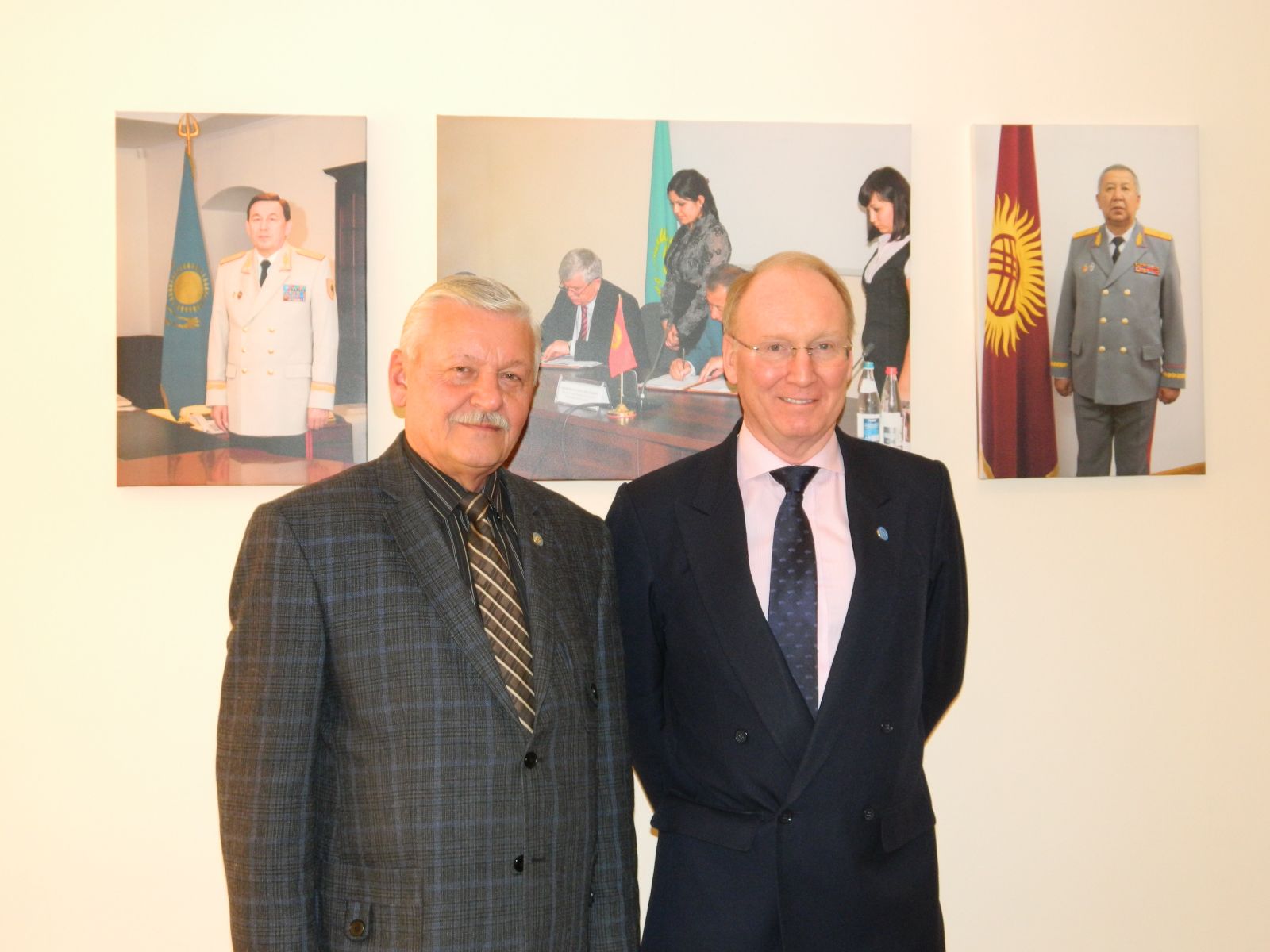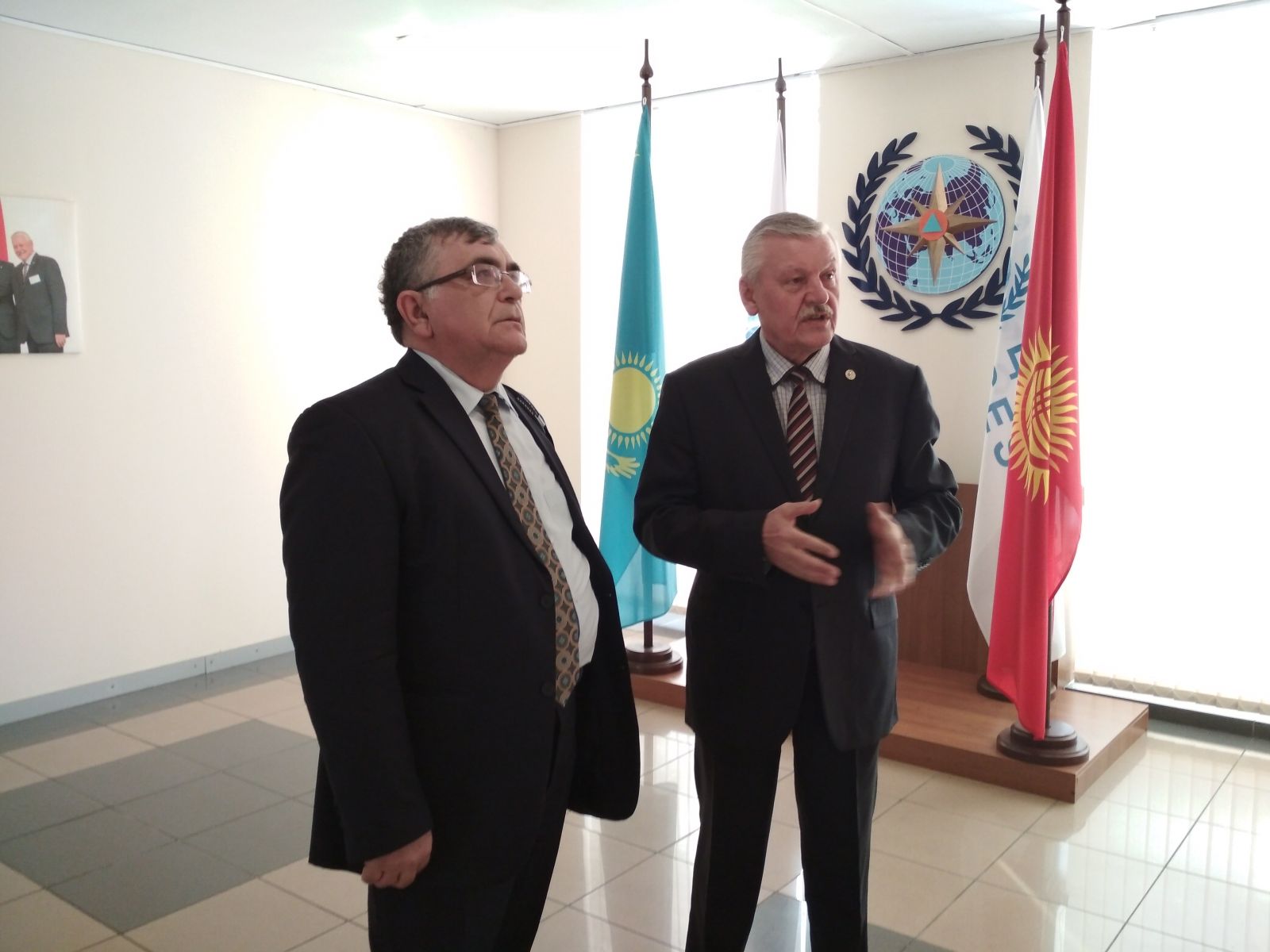ISTC and the Almaty-based Center for Emergency Situations and Risk Reduction conclude a Memorandum of Cooperation

(1).jpg)
For a variety of reasons, the International Science and Technology Center in Astana and the intergovernmental regional organization Center for Emergency Situations and Risk Reduction (CESDRR) established and maintain relations and seek to build mutually useful and efficient partnership. The newly signed Memorandum of Cooperation will crown, inform and guide their interaction, particularly with regard to the implementation of EU funded projects designed to foster safety and disaster preparedness in the region.
The Central Asia Centre for Emergency Situations and Disaster Risk Reduction was established by Kazakhstan and Kyrgyzstan, two prominent and active States Parties to ISTC. The groundwork was laid through one of the many EU-funded projects in the region as part of the Disaster Preparedness ECHO program (DIPECHO). In its turn ISTC has been engaged in implementing EU- funded projects in Central Asia that are consonant with the CESDRR planned activities. For instance, first contacts between the two organizations were established in June 2017, when ISTC hosted the Regional Radiological Emergency Response Table Top Exercise SUNKAR involved participants and observers from Uzbekistan, Kirgizstan, Afghanistan, Mongolia, and Kazakhstan.
The CESDRR was designed to better coordinate disaster and preparedness initiatives at the regional level in one of the most disaster-prone regions of the planet. For this purpose it creates links between government bodies, technical partners and communities living in areas at risk, and it will seek to strengthen capacities in disaster risk reduction, contingency planning, monitoring and early-warning information exchange. That explains why the two organizations place at the core of their agreement the exchange of scientific and research information and the joint implementation of projects in the field of seismic safety;
On 2nd November 2017, when the ISTC Executive Director Mr. David Cleave met with Mr. Valeriy Petrov, CESDRR General Director, at the Center Headquarters in Almaty, in addition to the overview of possible areas of shared interests, the two interlocutors noted the importance of scientific and technical programs to prevent and investigate the causes and consequences of large-scale and transboundary emergencies, in order to identify gaps and draw useful lessons for future actions. They also discussed common regional interests and possible cooperation and synergies between the two organizations with emphasis on remediation, capacity building and training capabilities.
On top of its core activities, the two centers also aim to develop a culture of safety in the Central Asian region by providing platforms for the exchange of information, best practices and technical training. How to mitigate disaster risk factors, how to identify, assess, forecast and monitor hazards, how to implement regional and international cooperation in DRR and emergency management – these ware and will remain according to the Memorandum recurring themes in the regular meetings between the Secretariats of the two organizations. This was the case when on the 8th February 2018 Mr. Aidyn Turebayev, ISTC DED, and ISTC Secretariat staff members met with Ms. Samal Bekmaganbetova, CESDRR Senior Specialist at the ISTC headquarters in Astana, or a couple of weeks later, on 16th February, when Mr. Kamen Velichkov ISTC SPM & Diplomatic Advisor visited the training facilities of CESDRR in Almaty.
There could be little doubt that one of the first areas of activities in implementation of the Memorandum will be the cooperation in trainings, seminars, meetings, advanced training courses, summer schools, etc., as the scientific research and the cooperation between communities of practitioners remain top priorities both for ISTC and CESDRR., as they work to attract international and non-profit organizational grants for disaster risk reduction, development and implementation of joint international projects.
 |
.jpg) |

